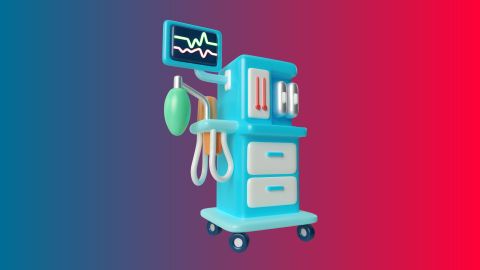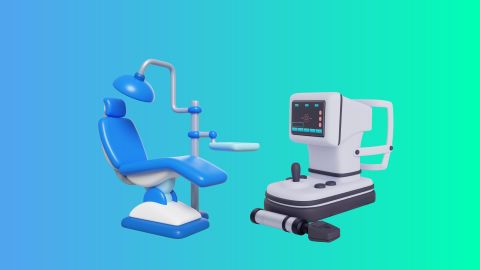In the realm of medical equipment, precision and reliability are paramount. An ACT (Activated Clotting Time) machine stands out as a crucial tool in monitoring anticoagulation therapy, especially during surgeries and procedures requiring blood thinning. By providing real-time data on blood coagulation, it ensures patient safety and optimal therapeutic outcomes. Understanding the ACT machine's features, applications, pricing, and available financing options is essential for healthcare professionals and institutions aiming to enhance their medical capabilities.
What is an ACT machine?
An ACT machine is a diagnostic device that measures the time it takes for blood to clot after an activator is introduced. This measurement is critical during surgeries like coronary artery bypass grafting (CABG) or during procedures such as dialysis and ECMO, where anticoagulation is necessary to prevent clot formation.
How ACT machines work
ACT machines function by introducing a clotting activator into a blood sample and measuring the time until clot formation. This process involves:
- Sample collection: Blood is drawn from the patient, typically from an arterial line.
- Activator introduction: A clotting activator is added to the sample.
- Clot detection: The machine detects the formation of a clot and records the time taken.
- Result display: The clotting time is displayed, guiding clinicians in adjusting anticoagulation therapy.
Features of ACT machines
Modern ACT machines come equipped with various features to enhance their utility:
- Real-time monitoring: Provides immediate results, allowing for timely adjustments in therapy.
- Portability: Compact designs facilitate use in various settings, including operating rooms and ICUs.
- User-friendly interface: Intuitive controls simplify operation, reducing the learning curve.
- Data storage: Ability to store multiple test results for patient records and analysis.
- Battery operated: Ensures functionality in areas without constant power supply.
Looking for funds to buy one? You may already be eligible for an offer! Check your pre-approved doctor loan offer now.
Applications of ACT machines
ACT machines are indispensable in several medical scenarios:
- Cardiac surgeries: Monitoring anticoagulation during procedures like CABG.
- Dialysis: Ensuring adequate anticoagulation to prevent clotting during treatment.
- ECMO procedures: Managing anticoagulation in extracorporeal membrane oxygenation.
- Critical care units: Assessing clotting times in critically ill patients.
- Research: Studying coagulation profiles in various conditions.
Check your pre-approved medical equipment finance offer to access convenient funding for critical care tools like ACT machines.
Price of ACT machine in India
The cost of an ACT machine in India varies based on brand, features, and specifications. Here's a general overview:
| Type of ACT machine | Description | Estimated price range (Rs.) |
| Manual ACT machine | Basic models requiring manual handling and operation | Rs. 50,000 – Rs. 2,00,000 |
| Semi-automated ACT machine | Combines manual sample preparation with automated timing and result display | Rs. 2,00,000 – Rs. 5,00,000 |
| Fully automated ACT machine | High-end devices with advanced features like real-time results and connectivity | Rs. 5,00,000 – Rs. 20,00,000 |
| Portable ACT machine | Compact, battery-operated models suitable for point-of-care testing | Rs. 1,00,000 – Rs. 3,50,000 |
| Integrated ACT systems | ACT machines embedded in multi-parameter platforms used in critical care | Rs. 10,00,000 – Rs. 2,00,00,000 |
Prices are indicative and may vary based on suppliers and locations.
Factors to consider before purchasing an ACT machine
When selecting an ACT machine, consider the following:
- Accuracy and reliability: Ensure the machine provides consistent and precise results.
- Ease of use: Opt for machines with intuitive interfaces and minimal maintenance requirements.
- Support and service: Check for availability of technical support and service centres.
- Compliance: Verify that the machine meets local regulatory standards and certifications.
- Cost of consumables: Consider the ongoing expenses for reagents and disposables.
Check your doctor loan eligibility to plan your investment in quality diagnostic equipment wisely.
Financing options for ACT machines
Acquiring medical equipment like an ACT machine can be financially challenging. Institutions can explore financing options to ease the burden, some of which are listed below:
- Bajaj Finserv Medical Equipment Finance: Offers loans up to Rs. 3 crore with tenures up to 120 months. Features include collateral-free loans, flexible repayment options, and quick disbursal.
- EMI network card: Provides pre-approved loans up to Rs. 3 lakh, allowing for easy EMI conversions on medical equipment purchases.
- Government schemes: Explore schemes like the Credit Guarantee Fund Scheme for Micro and Small Enterprises (CGMSE) for potential funding.
Conclusion
An ACT machine is an essential device in modern medical practice, offering real-time monitoring of coagulation status. Understanding its features, applications, and pricing is crucial for healthcare providers.
With financing options like Bajaj Finserv Medical Equipment Finance, acquiring an ACT machine becomes more accessible for clinics and hospitals. For individual practitioners, tailored solutions such as loans for doctors and professional loan offerings can further ease the financial burden, making it feasible to invest in this critical diagnostic tool without affecting cash flow.




